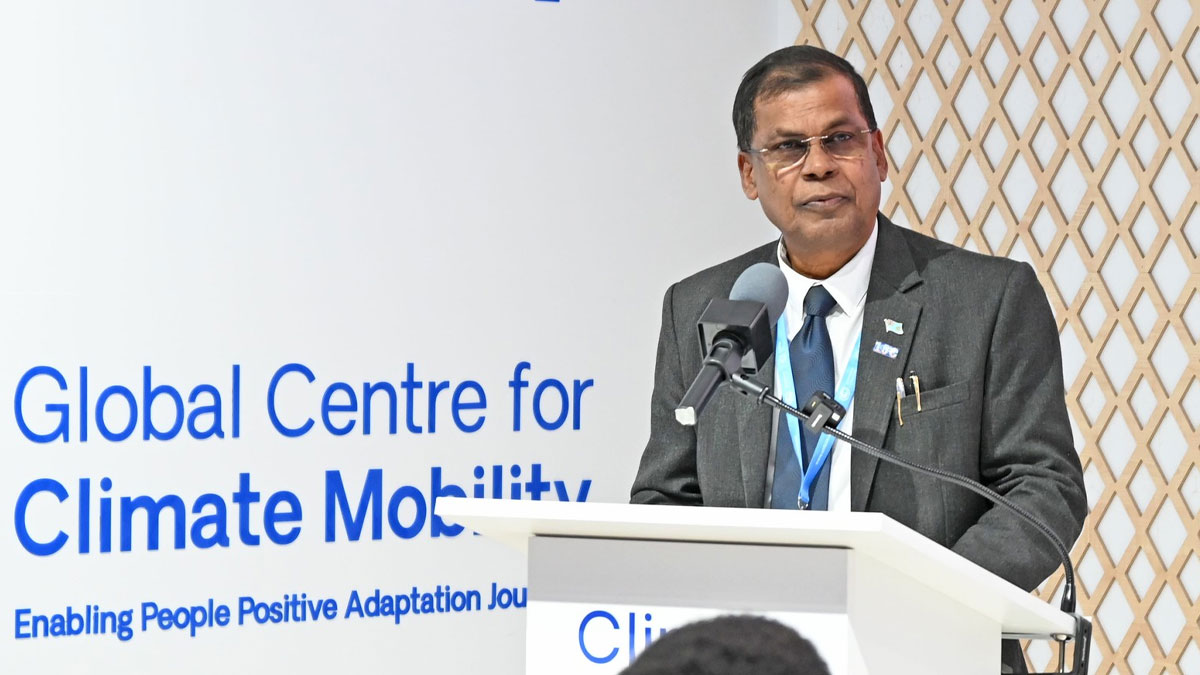
Deputy Prime Minister and Minister for Finance Professor Biman Prasad is urging world leaders to agree on the New Collective Quantified Goal on Climate Finance as it cannot be delayed any further.
While speaking during "Nature-based Financing for Climate Resilience: Leveraging Natural Solutions for Sustainable Development" on the sidelines of COP29, Professor Prasad says climate finance reached US$115.9 billion in 2022, however, Small Island Developing States had access to only US$1.5 billion out of the US$100 billion in 2019.
He says the UN Framework Convention on Climate Change estimates that nearly US$6 trillion is needed for developing countries’ climate action plans by 2030.
He says the Adaptation Gap Report 2024 estimates that over 40 percent of Small Island Developing States are on the edge of or are already grappling with unsustainable debt levels, and evidence shows that during and after every major disaster, private external debt tends to rise.
Professor Prasad says between 2016 and 2020, Small Island Developing States paid in debt service 18 times more than what they received as climate finance.
He says these vulnerabilities challenge the ability of Small Island Developing States to withstand external shocks and enhance their resilience.
The Deputy Prime Minister says Small Island Developing States have highlighted the urgent need for improved access to climate finance and enhanced capacity to implement large-scale projects addressing their climate challenges.
He further says COP29 is a monumental point in the fight to keep the 1.5°C goal alive.
Professor Prasad says the 1.5-degree guardrail is a redline they maintain that is consistent with the redline all Parties of the Paris Agreement are expected to have, yet we still see deep rooted hypocrisy across the efforts to promote the 1.5- degree objective while perpetuating the greatest threats to the achievement of this target.
He stresses that they are at COP29 to broker the basis of long-term climate protection and lock in the resourcing needed to ensure the damage of the climate crisis which we will face across decades, is fully mitigated through all efforts by the Parties.
The Deputy Prime Minister says they must agree for a new collective financing goal that is evidence based, built on a structure of response to mitigation, adaptation, and loss and damage needs and responsive to the specific needs of Least Developed Countries and Small Island Developing States.
Professor Prasad says anything less is an existential threat to the economies, ecosystems, communities, and cultures of many vulnerable countries, especially Pacific Island Countries.
Stay tuned for the latest news on our radio stations

